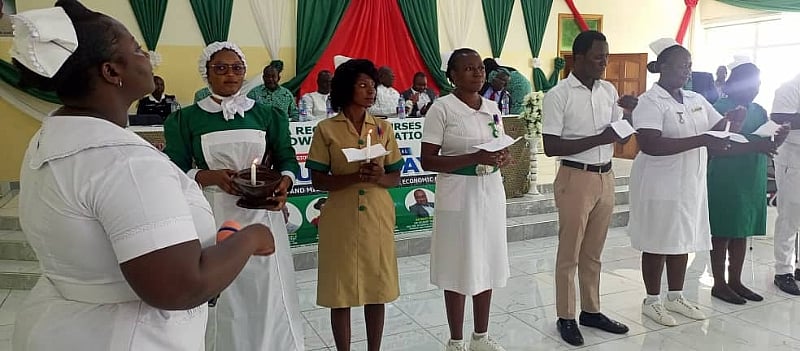The National Council of the Ghana Registered Nurses and Midwives Association (GRNMA) made headlines with its announcement that its members would not participate in the planned strike on October 10, despite the broader Organised Labour’s intention to lay down their tools. This decision reflects a strategic choice by the GRNMA, as they express solidarity with the ongoing struggles against illegal mining, commonly referred to as galamsey. In a press release issued on October 9, the association clarified its stance, emphasizing that while they support the fight against galamsey, their priority remains the delivery of healthcare services to the public.
The GRNMA’s announcement serves as a reaffirmation of their commitment to the health and well-being of the Ghanaian populace. The association directed all nurses and midwives to remain at their posts during the strike, reiterating their dedication to providing safe and quality health services. This decision highlights the essential role that healthcare professionals play in the country, especially during times of social unrest or protest, where their presence is pivotal to maintaining public health.
Furthermore, the GRNMA’s leadership indicated that their decision was made following an emergency meeting of the National Council. This illustrates the organizational structure and responsiveness of the association to both internal and external pressures. By choosing not to strike, the GRNMA sets a precedent that prioritizes continuity of care for patients, showcasing their responsibility as healthcare providers above political or labor-related disagreements.
Moreover, the association firmly aligns itself with the fight against galamsey, recognizing the significant adverse effects illegal mining has on the environment and public health. This issue has garnered national attention, with various groups advocating for stronger interventions from the government. The GRNMA’s partnership with other trade unions and associations under Organised Labour further underscores their commitment to this cause, signaling a collective effort to address the challenges posed by illegal mining.
In summary, the GRNMA’s decision not to strike while recognizing the importance of the fight against galamsey reflects a balanced approach to labor action. The association’s emphasis on the continuity of healthcare delivery during times of protest indicates their prioritization of public health. As they call for national interventions to combat illegal mining, the GRNMA positions itself as a responsible advocate for both healthcare and environmental sustainability.
Ultimately, the situation encapsulates the broader challenges faced by healthcare professionals in balancing their roles as advocates for social issues while ensuring uninterrupted health services. The GRNMA’s actions might serve as a model for how trade unions and professional associations can navigate complex socio-political landscapes, aligning their missions with national interests at the heart of public concern.


